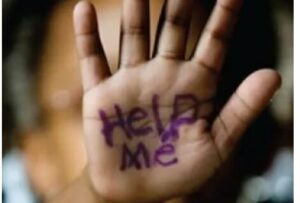From Ransom for Israel: “Starting a new school year in a new town has given me the job of teaching those who work with my children exactly what early childhood trauma can do to the developing brain. In children, prolonged periods of stress or trauma cause internal reactions that change the body and brain. They are literally wiring to survive, and even when the trauma and stress are gone, they continue to respond and react as if the trauma is still present. The younger the brain, the more susceptible to trauma.

Trauma in the lives of young children is not always understood . . . You might see:
- Trouble forming relationships with teachers or peers
- Poor self-regulation
- Negative thinking
- Hypervigilance
- Executive function issues
These problems stem from a brain that has learned to survive in life-or-death situations. And what must be understood, is that a child whose brain is constantly scanning the environment for danger is not learning or trusting. The hard part within your classroom is that danger lies in any new or novel concept that is introduced. This is why transitions and changes in routine are so hard for my children. Their brain is sounding the alarm that the worst thing that ever happened, is about to happen again.
When the brain is threatened, it gets really bad at making choices that don’t include survival. So if a bear were to run into your classroom, my kid could probably survive. The problem occurs when you introduce a transition or a new concept, my kid is still looking for the bear. In these moments you are going to see a child with poor self-regulation and behavior problems.
The natural inclination as a teacher, will be to correct and/or punish this behavior. We tend to use rewards and consequences within the classroom setting. Unfortunately, my brain does not care if you give me a sticker or put me in timeout; because a bear in the classroom trumps anything. Predictability is how I know I will be safe. I don’t have a regulatory system that can handle the stress that comes from unpredictability. I need to know what’s coming. When I can’t predict what is going to happen, I will start looking for the bear. This is unconscious, my brain has been hijacked by stress.
My kids from hard places have a diagnosis. It’s the one label that my children need understood and recognized, because it is how they survive. It is called Complex Trauma. Here’s the reality; if you are a teacher or you work in any capacity with children, then you are working with children with this same diagnosis.”
***
Back to Around the Web












